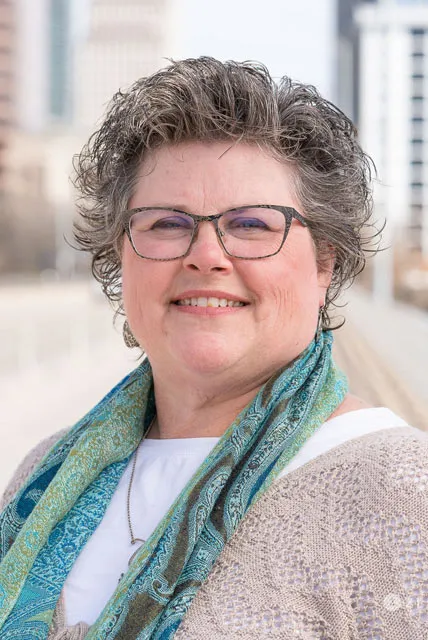Why Choose A Trained Sexual Abuse Counselor?
You know something is off. You look around and wonder what it would be like to be carefree like other people. Inside, you feel alone and stuck, like the rest of the world is leaving you behind somehow. Your relationships keep falling apart. You aren’t sure how to get out of this hole you find yourself in.
Since the incident or time in your life when it was happening over and over again, you feel like a shell of the person you were. It’s getting harder to pretend and harder to hold it all in.
If you are here, you may have experienced either sexual abuse as a child. Or, someone has forced, tricked, or pressured you into something sexual. Or, it may have gone a lot further than you wanted it to go. You feel dirty, used, and ashamed.
We understand and can help.

Do You Need Sexual Abuse Counseling?
You may have tried to push it away. After all, who wants to think about such an awful thing? Who wants to even admit it’s happened to you? You might have spent a long time pretending it didn’t matter or wasn’t as bad as you were making it out to be. This may even have worked for a while. But, you are starting to realize that the way you feel about yourself now is affecting lots of areas in your life.
You are sick and tired of feeling sick and tired.
Sometimes the signs are obvious, and sometimes they are not so obvious. For instance, you might notice:
- You hate your body.
- Sex (or dating) isn’t enjoyable the way it used to be.
- Pain feels better than how you feel on the inside.
- Your relationships are falling apart or are non-existent. You just can’t seem to be normal around other people.
- You always seem to be waiting for the other shoe to fall.
- Drinking or drugs is the only way to feel good.
- You “lose it” more often than you’d like to admit.
We could go on, but you get the idea. Left untreated, sexual trauma can be extremely damaging to your body, your relationships, and your life as a whole.
Sexual Abuse Counseling in Round Rock, Austin & Throughout Texas
You are smart and looking for help because the past keeps holding you back from your future.
Still, you hesitate.
You are so very tired of needing to make other people feel okay when you tell your story.
So, you need a professional who can help AND handle their own feelings about your story. You need a sexual abuse therapist you can trust.
We get it. We know that anything less is not acceptable.
You deserve to be heard and feel whole again.

There Are Good Counseling Options To Heal Sexual Trauma
Meet Our Team

Resident Clinician Bailey Pellissier, LMSW, EMDR

Senior Clinician Heather Hammock, LMFT, EFT, EMDR Certified, Sex Therapist

Advanced Clinician Oliver Papa, LPC, EMDR, Narrative Therapy

Advanced Clinician Shauna Onabajo, LPC, EMDR

Advanced Clinician Sophie Chudleigh, LCSW, EMDR

Traci W. Pirri, LCSW-S, Founder/Executive Director, EMDR Consultant

Senior Therapist Maegan Woytek, LPC, EMDR Certified
Luckily, sexual abuse and assault do not have to equal a life sentence. Good treatment helps you get control of your life again.
Hope For The Journey specializes in sexual assault counseling for Texas.
We are honored to help people in Austin, Round Rock and throughout Texas. Our team helps clients move from daily panic attacks to calm, confident, laughter-filled days. We watch you move from feeling broken and used to being on fire about your life. The strength, bravery, and resilience of our clients never fail to amaze us.
What Should I Expect From Good Sexual Assault Counseling?
Feel Capable
Getting started can be the hardest step. Really! Talking about your assault is such a scary thing, and reaching out is often the hardest part of treatment.
So, we try to make each step of the way as smooth as possible. From the first phone call to signing the paperwork to understanding what your options for sexual abuse counseling are. We want the process to be easy, clear, and tailored to you.
Heal What Hurts
A sexual trauma therapist will work to build your trust in them. They will show up, be 100% present, and do what they say they will do. They will help you learn how fast or slow you need to go to stay grounded and not overwhelmed.
Together, you will learn how to handle the emotions inside the session and out.
Feel Whole Again
After sexual assault counseling, our goal is that the sexual trauma will be something bad that happened to you once, and you no longer feel like who you are. We want you to feel excited about the future.
We love seeing our clients’ confidence in themselves growing stronger. You deserve to have healthy relationships and the life you have always dreamed of having.
How Long Does Sexual Abuse Counseling Take?
In the trauma world, we talk about simple trauma and complex trauma. We have to decide what kind of trauma you’ve experienced before discussing the length of treatment.
Simple traumas are when one bad thing happens amid an otherwise supportive, love-filled life. Complex trauma happened when you get a short stick in life, and lots of bad things have happened. This may include a difficult childhood, many traumas, physical issues, etc…
Simple traumas and even some complex traumas can be healed in only 8-12 sessions. More complex trauma can take a while longer–even years sometimes. But when you find a good fit with your sexual abuse therapist, you will often start to feel better very soon.
Once you get started, your sexual abuse therapist will have a better idea of how complicated sexual abuse counseling might be.


What Will Sexual Abuse Counseling Cost?
Counseling–especially good, thorough sexual abuse counseling–is an investment in your future. As such, like anything, you get what you pay for.
Our session rates start at $125/clinical hour and go up to $175/clinical hour, depending on your clinician’s experience and training level. We also offer a sliding scale for a limited number of clients per clinician. We are happy to provide a superbill so you can bill your out-of-network benefits, if applicable. This is when your insurance benefits allow you to see someone outside their network. When doing so, they will send you a refund check according to your benefits.
For little more than the cost of a massage, you can change your life trajectory forever. Find out more here.
How Will I Know If My Sexual Abuse Therapy Is Working?
When you feel supported, believed, and empowered, big and small things start happening in your life. Our clients often find themselves in great relationships, enjoying life, and feeling in charge of the direction of their lives.
Sexual trauma is a terrible thing to experience, but it does not have to dictate your future. If you are ready to take back control, find your counselor today with only a phone call.

